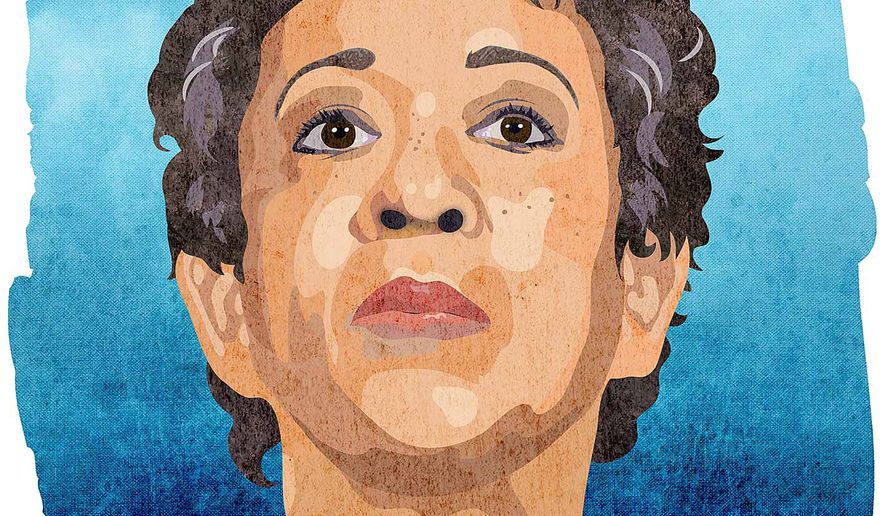OPINION:
Former Obama Attorney General Loretta Lynch, in a NBC interview last Monday, reopened a can of worms. In the interview, Ms. Lynch defended her private meeting with Bill Clinton back on June 27, 2016.
At the time, Bill’s wife was running for president and under investigation by the FBI. Ms. Lynch strained to, once again, say that meeting was “innocuous.” But why on national television? Why now again?
Despite former President Clinton delaying departure for hours to board Ms. Lynch’s plane, she indicated he just came aboard her plane and told a “long but charming story.” The message for viewers, like what we can assume will be part of James Comey’s coming interviews for his book, is pay no attention to facts behind the curtain. Ask no more questions. For goodness sake, or at least for ours, do not appoint a second special counsel to investigate Hillary Clinton.
That “tarmac” meeting should never have happened. In Ms. Lynch’s interview, she questions Mr. Comey’s testimony from June 17, 2017, that she instructed him after the “tarmac meeting” to refer to Hillary Clinton’s investigation as a “matter,” not an investigation.
Why does any of this matter? Because truth matters. America is about rule of law, not political manipulation of justice to serve political actors. Tricks are afoot. Here is what is happening.
Defense of the old “tarmac meeting” is back in the news for a reason. Average Americans, circumspect Democrats, independents and Republicans, are beginning to suspect a heavy political hand on rule of law. They do not like it.
Here is the real concern. The American Bar Association (ABA) rules amount to black letter law on ethics. Among other things, they make clear the attorney general had no place taking that meeting. She should have refused it.
If the former president forced the meeting on her, staff should have been present, if only to assure he was not bending her to his will. That did not happen.
Since that did not happen, by oversight or intent, she should have immediately put that investigation into the hands of the number two prosecutor, the deputy attorney general.
Alternatively, she should have done what Attorney General Jeff Sessions did to avoid the perception of conflict — obvious to her own staff. She could have named a special counsel to manage the Clinton investigation, reporting to the deputy attorney general. That would have solved her problem.
She did none of those things.
It only gets worse. The attorney general delegated nothing, then insisted the FBI downplay an investigation of the Democratic nominee, calling the investigation a mere “matter.”
What else was wrong? According to the ABA ethics rules, beyond not meeting Bill Clinton, not talking with him since he is the husband of the target, not being left alone with him, not remaining in an investigation after such a meeting, not failing to appoint an unbiased replacement prosecutor, not directing FBI to downplay, she should have redoubled her public commitment to the perception that law is never subservient to politics. She did not.
Frankly, her judgment was miserable. The result is this: She either grossly politicized rule of law, or allowed a devastating perception to emerge that her department existed to serve politics not justice.
Either way, she appeared a compliant servant of the Democratic Party, that party’s nominee, and her political boss and the nominee’s political ally, Barack Obama.
Downstream effects of those poor Lynch decisions have been devastating to public trust. Other decisions, specifically by Mr. Comey, did the same. Inexplicably, he stepped outside his constitutional role and declared himself in charge of the Clinton prosecution, on his own or at Ms. Lynch’s direction.
With zero prosecutorial authority, Mr. Comey cleared Mrs. Clinton of all crimes, then reopened an investigation when his politically linked deputy revealed added emails implicating Mrs. Clinton, then closed the case again before the election, creating a masterful, misguided muddle.
That brings us to today and Mr. Comey’s tell-all book, sure to say his judgment is good, Ms. Lynch’s bad, his extra-constitutional actions defensible, his testimony not perjury, and President Trump — who had every reason to let this quixotic ego go — should not have fired him.
Mr. Comey will say President Trump is a bad fellow, Special Prosecutor Robert Mueller a paragon of virtue, and Mr. Comey’s firing for patently bad judgment unwarranted. He will say Mr. Trump politicized Justice, rounding out a national tragedy, in part his fault, with Shakespearean irony.
In truth, Mr. Comey earned his departure, no matter what he says. Like Ms. Lynch, he knows the score. If a special prosecutor is appointed to unscramble Hillary Clinton’s long list of misdeeds, it will reflect badly him.
Former Attorney General Lynch knows the same thing. That is why they are both pushing innocence, like a used car salesman hoping we’ll buy their flashy story. They are not interested in an unbiased, legal review. They do not want a second special prosecutor.
And that is precisely why Bill Clinton, on a sunny day in June 2016, waited to intercept the former attorney general’s plane and sent a bold message with that “innocuous” private meeting, telling her an unsolicited, inexplicable and “long but charming story.”
The real story is quite long, not so charming — and not yet over. Facts augur in for a second special prosecutor. With or without the Mueller wrap, it is time. Americans need trust in their legal system. Interviews just reintroduce us to the old worms.
• Robert Charles is a former assistant secretary of state for international narcotics and law enforcement in the George W. Bush administration.




Please read our comment policy before commenting.